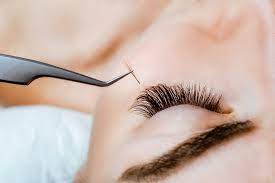
In a statement that drew criticism from some independent experts, the FSA said that, to reduce the danger, consumers should opt for “#GoForGold”, a gold colour rather than a darker brown when frying, roasting, baking, grilling or toasting. It also said potatoes should not be stored in the fridge, which can increase acrylamide levels, and should be cut into larger wedges to reduce their surface area when cooked to limit levels.
“The scientific consensus is that acrylamide has the potential to cause cancer in humans,” it said.”As a general rule of thumb, aim for a golden yellow colour or lighter when frying, baking, toasting or roasting starchy foods like potatoes, root vegetables and bread.”
But some experts said there were far more well-established and significant foods and habits linked to cancer risk -such as smoking, drinking and being overweight and consumers should focus on changing those above all else. “Evidence from animal studies shows that acrylamide has the potential to interact with the DNA in our cells, so could be linked to cancer,” Cancer Research UK said in a response to the FSA’s announcement. “However, evidence from human studies has shown that, for most cancer types, there is no link between acrylamide and cancer risk.”
The WHO’s International Agency for Research on Cancer, classifies acrylamide as a “probable human carcinogen”, putting it in the same risk category as using anabolic steroids, eating red meat, drinking very hot drinks or working as a hairdresser. Several reports pointed out that tests cited by the government had only confirmed that acrylami de in the diet causes cancer in animals, not in humans.
Britons consume an estimated 382 million portions of fish and chips every year and there some 10,500 around “chippies” around the country . Toast is Britain’s favourite breakfast and teatime food, while roast potatoes are a Sunday lunch staple. “Should we give up toast?” BBC News tweeted, while the Daily Mail assured readers: “Burnt toast isn’t dangerous -unless you have 320 slices each day .”
There have been similar health alerts in other countries since Sweden first warned about the dangers of acrylamide in 2002, including in US. The WHO and the European Food Safety Authority have also said that acrylamide may be a human carcinogen, the FSA said.










